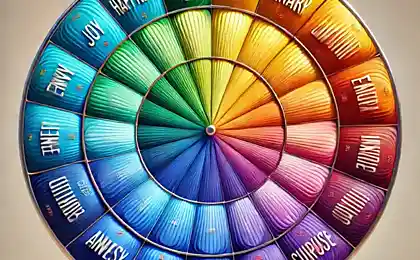241
11 Signs You Are Projecting Your Feelings on Others, and Why It’s Harmful

Introduction: What is projection?
Projection is a psychological mechanism in which a person attributes their own feelings, thoughts, or motives to others. It’s a form of defense that helps you deal with internal conflicts, but often prevents you from building healthy relationships and understanding yourself. If you find yourself constantly blaming others for what you actually feel, you may be prone to projection. Let's figure out how to recognize this and why it is harmful.
1. You often blame others.
If you constantly see negative traits in other people that you don’t see in yourself, it can be a sign of projection. For example, you accuse a colleague of laziness, even though you avoid difficult tasks.
Why is that harmful?
Accusations create tension in the relationship and prevent you from seeing your own flaws.
2. You feel like you're being misunderstood.
If you often think that others do not understand your intentions, you may project your own doubts on them.
Why is that harmful?
This leads to feelings of isolation and distrust of others.
3. You attribute your emotions to others
For example, you’re angry, but you say, “You’re angry with me.” This is a classic example of projection.
Why is that harmful?
This prevents honest communication and conflict resolution.

4. You avoid responsibility.
Projection allows you to shift the blame on others, so as not to face your own mistakes.
Why is that harmful?
This hinders personal growth and development.
5. You idealize or demonize people.
If you tend to see others as either good or bad, it may be a projection of your inner conflicts.
Why is that harmful?
It distorts reality and prevents healthy relationships.
6. You often feel like a victim.
If you think everyone around you is trying to hurt or exploit you, you may be projecting your fears.
Why is that harmful?
This increases feelings of helplessness and distrust.
7. You don't trust others.
Unfounded distrust can be a projection of your own ulterior motives.
Why is that harmful?
It destroys relationships and creates barriers to communication.

8. You often feel guilty.
If you feel guilty all the time, even when it’s unwarranted, it can be a projection of your internal conflicts.
Why is that harmful?
This leads to low self-esteem and emotional burnout.
9. You avoid introspection.
Projection is often used as a way to avoid painful introspection.
Why is that harmful?
It interferes with personal growth and self-knowledge.
10. You often feel irritated.
If you are annoyed by certain traits in others, you may project on them what you do not accept.
Why is that harmful?
This increases negative emotions and creates tension.
11. You can't let go of the past.
If you constantly return to old grievances, you may be projecting your unresolved problems into current situations.
Why is that harmful?
This prevents us from living in the present and building the future.
Conclusion: How do you handle the projection?
Projection is a natural mechanism, but if it becomes habitual, it can seriously damage your life. Start with introspection: Ask yourself why you react in a certain way. Practice empathy and learn to separate your feelings from those of others. Remember that understanding a problem is the first step to solving it.
9 Discoveries That Changed Understanding of Human Evolution
9 Methods and Tools That Will Let You Order Your Life to Achieve Your Goals























